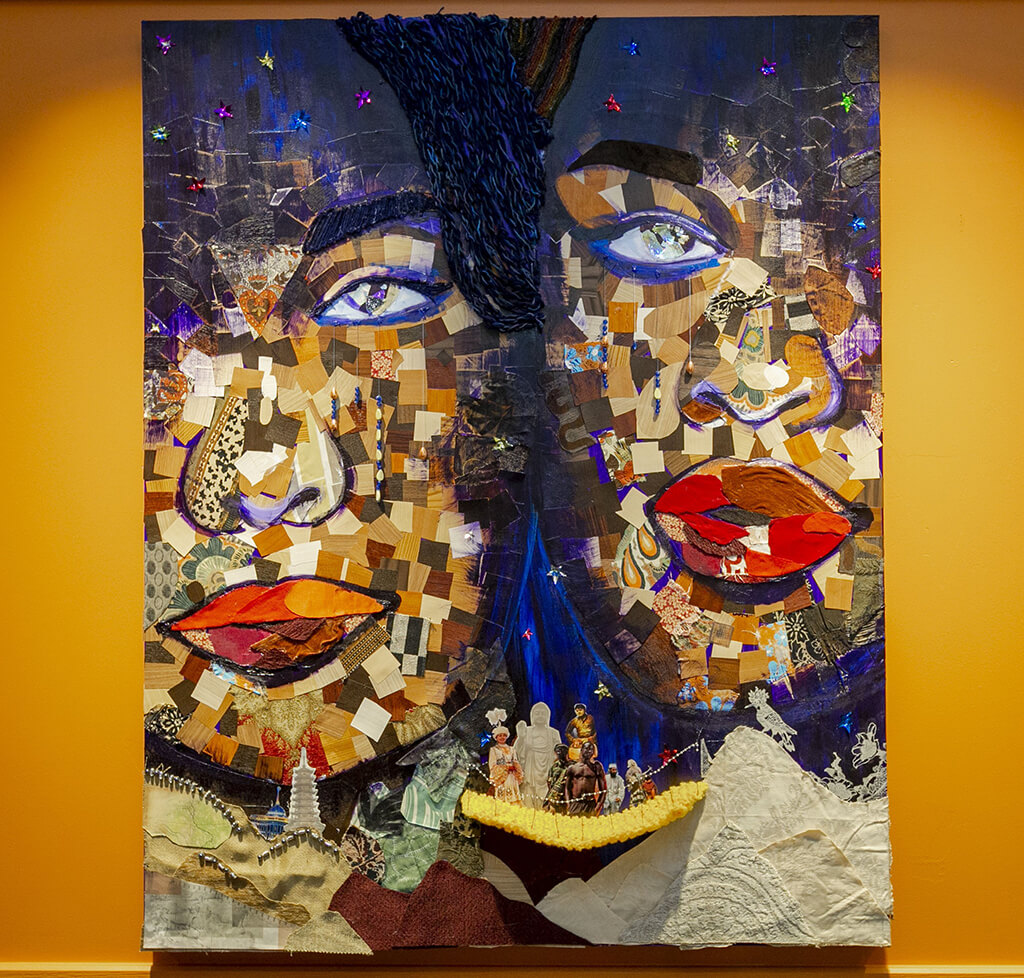The values, processes, and practices of the TRHT Framework guide our interdisciplinary approach to curricula design and innovation regarding race, race relations, and racism. The false belief in a racial hierarchy is integral to divisive dominant narratives that have been constructed, taught, and reproduced within and across societies. Our ongoing work in Narrative Change enables us to critically assess, revise, and devise what is included in curricula. We seek to interrogate dominant historical and contemporary narratives about race and racism in our world, nation, region, state, community, and at Duke. Revealing, rethinking, and uprooting unjust, oppressive, less inclusive, and inaccurate narratives and unveiling, creating, and promoting more equitable and truthful narratives will in turn generate more representative versions of our collective histories and diverse personal journeys. Curricula on race and racism that reflect a broad range of histories, scholarship, and lived experiences provide students with the opportunity to think and act differently concerning the production and circulation of knowledge. Racial Healing & Relationship Building, a central component of our engagement work, facilitates our relational approaches to the design and implementation of curricula on race and racism. We develop and utilize teaching practices and tools that enable all learners to feel seen, heard, and understood and to increase their capacity for empathy and perspective-taking. Aligned with the TRHT Framework pillars of Narrative Change and Racial Healing & Relationship Building, these intentional strategies can lead to transformative learning for both instructors and students. In Spring 2022, the TRHT Center offered a course entitled “Race, Place, and Compassionate Space”, which is an example of the ways in which we incorporate the TRHT Framework as part of our teaching.
Spring Breakthrough 2022 Course
The Duke Spring Breakthrough program offers undergraduates an opportunity to engage in intellectually stimulating, fun, and creative learning in a non-pressured environment. Students are not graded, and enrollment is entirely free. This unique program enables students to explore subjects and learn from peers and professors they may not encounter as part of their regular academic program.
Race, Place and Compassionate Space
Where we grow up, live, learn, and work influences how we view and experience race. Students explored this idea as they examined the current reckoning with race, race relations, and racism at Duke, in the US, and globally. Through the lens of the Truth, Racial Healing & Transformation movement underway nationwide and at Duke, they visualized strategies for dismantling racism. Within a compassionate space of sharing and listening, students modeled some aspects of the future they envision. In collaboration with Bill Fick from Duke Arts and William Paul Thomas, a local artist, students translated their collective work into art that was displayed at the Ruby.
Instructor: Charmaine DM Royal
Original artwork created by Gi Chun, Tessa Kanjiramkuzhey, Junayed Khan, Lin Li
We live with illusions of separation, namely racialization and racism. To foster a compassionate space where everyone could find home, we must create bridges across constructed divides through relationship building and narrative change. We must then cross those bridges to understand each other, achieve racial healing, and reach solidarity. “Whose home is this?” invokes a constellated night sky and the natural landscape, to remind us of our common human origins. The eyes of the piece are reflective, as others’ perspectives can be mirrors to your own experience. The use of a collage embodies the spirit of collaboration and the fact that without any one of our experiences, we are incomplete.
TRHT Framework Faculty Workshop
With a grant from Duke’s Office of Faculty Advancement, the TRHT team is developing a workshop for Duke Faculty designed to apply the TRHT Framework in the context of teaching. In close collaboration with Duke Learning Innovation, the TRHT team is developing this workshop to demonstrate the value of incorporating two specific pillars of the TRHT Framework, Narrative Change and Racial Healing & Relationship Building, in the classroom to foster students’ sense of belonging. The workshop itself will serve as a model of pedagogical processes that can facilitate the integration of these pillars into the classroom experience.
Mentoring
We have been mentoring and learning from Duke graduate and undergraduate students, who have actively sought opportunities to work and collaborate with us. Each student intern has been introduced to the national TRHT movement, TRHT principles and the TRHT Framework as a holistic and comprehensive process for achieving sustainable change. Students have also experienced our integrative approach to mentoring on race and racism, which allows them to think more critically about theories, methodologies, and practices in their chosen fields of study.
Through ongoing cross-institutional partnerships with the UNC School of Social Work’s MSW Field Education Program and the UNC School of Education’s Human Development and Family Science undergraduate leadership program, we mentor UNC students, who work with us as part of their graduate or undergraduate field placement. Their experiences as TRHT interns have enabled them to think more deeply and strategically about how the TRHT Framework can be applied to their interdisciplinary research and practice within either Social Work or Human Development and Family Science. In fact, Megan Stanley, our former Racial Healing Program Coordinator, who is now the College Readiness and Success Coordinator at Student U, began working with us as part of her MSW field placement.

